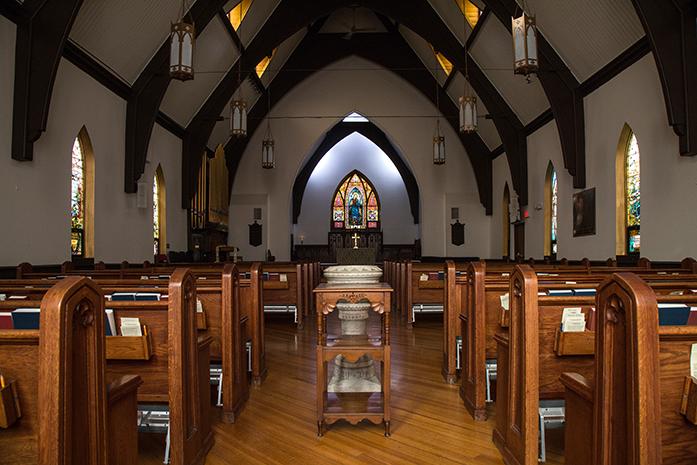Trump fulfilled another promise to his supporters from the campaign season by signing yet another executive order giving the church more leeway when it comes to being involved in politics. The order was actually reported by the Washington Post to be somewhat vague, not containing all the glorious changes the majority of Christian conservatives wanted to see.
However, the order included the elimination of the financial threat tax-exempt churches face from the Internal Revenue Service when pastors speak out in favor of candidates. The order also administers “regulatory relief” to those with religious objections to the Obama mandate that requires contraceptives as part of health plans.
In the midst of signing this order, President Trump made sure to announce, “… you’re now in a position to say what you want to say … No one should be censoring sermons or targeting pastors.” Funny thing is, I agree … in a way.
Religion should not be censored or completely hidden in that manner. Our money should not say “in God we trust” as if everyone in the United States believes in God or only one God. The ritual of politicians and witnesses swearing on Bibles should not be allowed, forcing other religions into the shadows. When speaking the national anthem in honor of our country, the line “under God” should not be included, pushing the ideology to school children who say the anthem daily, that there is only one religion Americans can identify with, and it may not be theirs.
What is believed to be the original draft of last week’s executive order was leaked in February. The draft granted organizations and individuals discretion in denying employment, services, and other benefits to people that go against their religious beliefs. This is similar to a Supreme Court case, Masterpiece Cakeshop v. Colorado Civil Rights Commission, which is supposed to be debated soon. The case includes a baker that refused to make a wedding cake for a gay couple, claiming it was against his religious beliefs. Whether that is lawful has yet to be decided.
The great United States was practically founded on religion. The strong relationship between church and state allowed both institutions to get by. The church supported the government, making way for their followers to do the same, and the government provided money and exemptions to the church in exchange. This system worked well for those in power.



